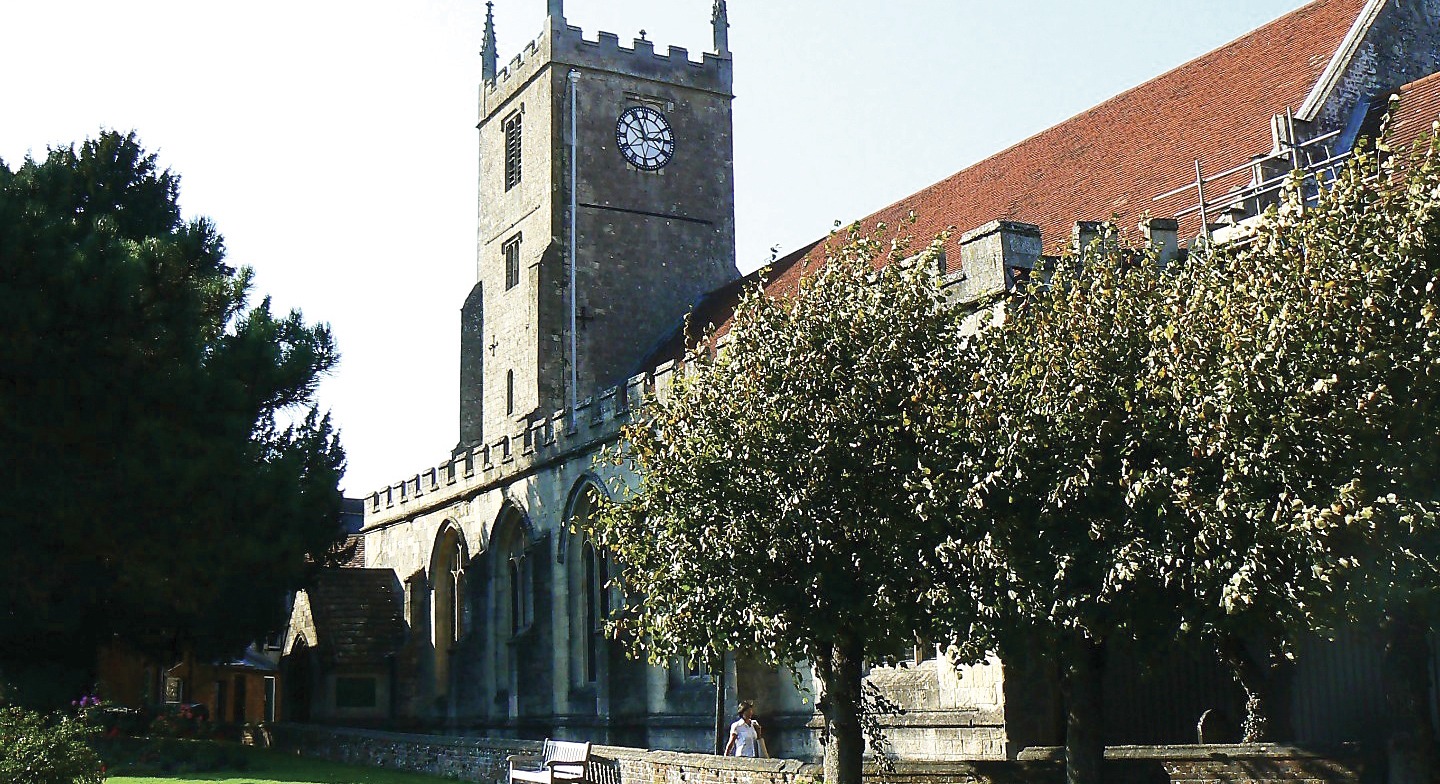Bucolic and a Little Less Barmy: Seeking Respite in Post-Brexit Wiltshire

Jeremy Kinsman
French provides a foundational expression, se changer les idées, to escape to somewhere else when recharging is needed.
I needed a time-out from Canada’s inward-facing parochial scene, in which the wider world is unexamined beyond the Ukraine war and US scandals, gun violence, and the latest on Trump. A respite to faire changer les idées in a smallish town of 10,000 in rural South West England served its therapeutic purpose admirably. Herewith my dispatch from Marlborough.
I had always taken references by older, long-ago immigrant Canadians to the “old country” as put-downs of the places people had quit for a better life in their new home of choice. But being back in the UK, and NOT in London, I now get the more rewarding meaning of England being “olde.” It’s about built and natural physique and the shared intuitive memory of countless generations of prior inhabitants.
Physical reminders of “oldness” in such venerable towns as this are oddly comforting. Just twenty feet beyond the high and clear windows of our subdivided late Georgian manor house looms a very large copper beech tree. It is almost grandmotherly in the comfort it gives, assuring us it has seen it all in its more than two centuries presiding over what has always been the busy “London road.” Behind it, I see the tower of St. Mary’s Church, founded in the 12th century. Their comfort to the soul is reinforced by the timeless, big-sky landscape of rolling farmland, hedgerows, and pasture we explore daily in every direction. But the most perspective-providing sight in this market town between London and Bath is the Marlborough Mound, a 19-metre tall neolithic earth monument that dates back 4,400 years. The mound’s original purpose remains lost to the mists of time, but local legend pegs it as the burial ground of Merlin, the great Arthurian éminence grise.
That sense of timeless continuity is helping people settle down from the wild Brexit ride of the past several years — itself largely about sovereignty in today’s interdependent world. It became roiled to breaking point by unusually inept political leadership. As that chapter ends, and as Britain prepares for a probable change of government in a year or so, the political chaos has all-but subsided, Boris Johnson’s exit from political life, one can only hope, being the last chaotic shudder.

Looking back now at the divisive Brexit vote campaign, the disinformation the Leave camp weaponized through well-funded advocacy media, and powerful new social networks with their potential for mass propaganda seems otherworldly. It’s chastening to ponder that someone cynically wrote and paid for the lie that was posted on the sides of red double-decker buses Boris Johnson rode all-round the country, promising that leaving the European Union would release 350 million pounds a week to fix the under-funded National Health Service. Totally untrue.
In polling, fixing the NHS rivals the high cost of living at the top of the public’s priorities, followed by long-term economic prospects, and defence against climate change. Despite surgical wait times that rival Canada’s, 90 percent of people still rate the NHS as Britain’s most cherished national treasure (higher even than the monarchy — that is at least emphatically their own).
Immigration, which so animated the Leave campaign, remains a priority complaint on a Conservative right that obsesses over refugees who try to cross the Channel on rafts. But Britain was never overrun by immigrants, and especially not refugees. Clogged roads do attest to it being overcrowded by 67 million Brits who love their cars. Brexit chased out almost a million excellent EU workers, decimating staffing everywhere from the NHS to pubs. But now immigration is at new highs, essentially replacing EU citizens with people from everywhere else. If there is good news, it is that Britain’s labour market needs them, and even greater diversity blends well.
There is common agreement among participants, commentators and analysts – as well as everyday voters whom I have consulted over the last years, and intensively during my stay these last months — that Brexit was always about identity, driven by Tory nativist Euroscepticism, for the vast majority of people. Multiple polls during and after the campaign confirm that Leave voters voted on 1) Identity, twice as many as “English” nativists than as Brits, generally also anti-German, anti-French, 2) “Freedom” and sovereignty, unhindered by EU common policy and laws, 3) Opposition to rising immigration, which they associated with the free movement of EU labour, 4) A more conservative economic agenda as opposed to the European social contract, (the UK had opted out of) and in contradiction in the working-class North, for more protection of local manufacturing, 5) A global independent Britain — polling then showed 60% of Leave voters judged the UK’s economic future lay with the US, not the EU — today that is down to 20%, 6), Romantic nativism (Wordsworth and Turner), ex-imperialism (Elgar and Kipling), and culturalism, (Fawlty Towers), 7) To stick it to the British establishment, which was largely Remain, and, finally, 8) Defiance of the forces of change.
The tangential benefits of more “freedom” may be psychological but the economic hit is real and, ultimately and ironically, will redound on identity for that reason. Almost everyone — not the “rentiers” — is somewhat poorer in the only industrialized economy to continue to shrink post-COVID. Inflation still hovers around 10 percent, keeping interest rates up. The International Monetary Fund (IMF) and other agencies put Brexit’s long-term cost per capita between 4 percent and 7 percent of income. The loss of tax revenues is about 40 billion pounds annually. Adding insult to injury from the exodus of “Polish plumbers,” a comparison this week indicated that Poland’s poorest quartile is now better off than British counterparts.
It isn’t all due to Brexit. Loyal Brexiteers urge patience, but the Conservative Government has lost public trust. The hardcore Tory wing’s single-minded pursuit under Boris Johnson of the “hard-Brexit” option, of hubristically ditching the single European market — that is Britain’s largest at 43 percent of exports — was more than the population bargained for. Only 27 percent of UK voters now believe Brexit is beneficial, with most declaring it “a mistake.” Fifty-eight to 60 percent would support rejoining the EU.
Last December, a 50th anniversary session in London of the Canada-UK Colloquium exposed Canadian participants to the bitter lament of the “Remain” establishment, to the point that we, who had urged the Cameron Government in 2016 not to risk a binary “in-or-out” existential referendum just to placate a rebellion in the party, consoled them it couldn’t be that bad. They insist it is.
But the impressive Labour Shadow Foreign Minister David Lammy told us that a Labour government would have no interest in re-opening Brexit “arguments of the past.” An election must be called by January 2025, but is more likely in about a year. Labour’s lead in the polls, as wide as 30 percent last fall, has stabilized at about 15 percent. It is an amazing turn-around from the landslide majority won by Boris Johnson in 2019. People at first welcomed his entertaining and optimistic style, particularly compared to the dour Labour leader from the doctrinal left, Jeremy Corbyn. But Johnson’s shambolic and discrediting performance during the pandemic cost him his job.
“In the end, living here in Angleterre profonde encourages sympathy for the notion of British uniqueness that was the positive side of the Brexit case — that this isn’t just another European country. (Nor, though, are any of the others)”
It is hard to believe a successor could do worse, but Liz Truss managed to do so, in her 43 days pushing a loony libertarian agenda of tone-deaf unfunded tax-cuts and de-regulation. Rishi Sunak, a decent, if nerdy, economist and young adult successor stabilized the collapse. But he is now contested in turn by the self-important but out-of-touch right-wing of the party for his efforts to reach out for broader support. A divided government loses elections, particularly in a harsh economy.
After its 2019 election debacle, Labour turned to the no-nonsense, frankly uncharismatic but competent ex-head of criminal prosecutions, Sir Keir Starmer. When Labour last ended a longtime Conservative regime (18 years), it was under Tony Blair in 1997. His “New Labour” positioned government closer to the centre, which, according to Blair’s “theory of the median voter,” is where majorities form and compromise is possible, making democracy work. Aiming to do the same, Starmer estimates that he has the numbers (including in Scotland, where the SNP has imploded, as parties long in power often do). Most of the traditional Labour voters who formed “the red wall” in the North of England but who migrated to Brexit and Johnson, have returned to the fold. So, as Lammy said, Starmer is not going to try to relitigate Brexit and stir up all the drama again, just to vindicate remainers.
Every day, no-drama Starmer tries to project competent stability. That is normally the re-election message from governments in power, but after the goon show that followed David Cameron’s departure in 2016, it isn’t credible, even for Sunak’s more stable Tory team.
The UK public is pretty much waiting for Labour. Starmer is doing everything to show the country it will be safe in his increasingly centrist hands He has purged the Corbynistas from party ranks, and has dropped some early policy planks such as free university tuition, higher taxes on the rich, and selective nationalizations. Starmer would inherit a wobbly economy but would enjoy the public’s relief and initial good will. The Conservative Party will likely tack farther right, marginalizing it further, suggesting Labour might be in for a decade or more (though remembering that was said about Johnson after his 2019 landslide).
On foreign policy, the Brexit playbook vaunted a “global Britain” theme of wide-ranging mercantilist partnerships to replace the EU. But it was mostly a dream from imperial muscle memory. The remnant reality is that Britain is now a middle-sized global striver among several, more at home but more alone. Donald Trump’s misleading cheerleading for Brexit was part of his disruption agenda. Biden’s America has politely dissuaded London on a bilateral FTA that was to be a cornerstone for “global Britain.” Starmer (and probably Sunak as well) gets how much Washington had valued its tight relationship with a UK that had a lead role inside the EU — a powerful UK influence multiplier. But Starmer hopes to recover it in part by moving Britain closer to the EU in joint action where possible.
Britain’s internationalist vocation draws from almost unrivalled soft power from the BBC, culture, and much else, including its educational assets and business acumen. Robust UK commitment to Ukraine, and its high-grade defence kit, may even win its defence minister, Ben Wallace, appointment as NATO’s next secretary general (though the Canadian deputy prime minister may in the end be seen as what NATO needs).
In the end, living here in Angleterre profonde encourages sympathy for the notion of British uniqueness that was the positive side of the Brexit case — that this isn’t just another European country. (Nor, though, are any of the others.) Younger Brits did feel as European as British or English, per today’s multi-identity custom. They can hopefully retrieve that belief from a new non-member positive partnership with the now self-confident EU that viscerally Eurosceptic Tories can’t abide. But a reframed positive partnership is essential for Britain’s development, and provides a compatible European family setting for Britain’s enduring “old country” soul and self.
Contributing Writer Jeremy Kinsman is a former ambassador to Russia, the EU and Italy, as well as a former High Commissioner to the UK. He is a Distinguished fellow of the Canadian International Council.
